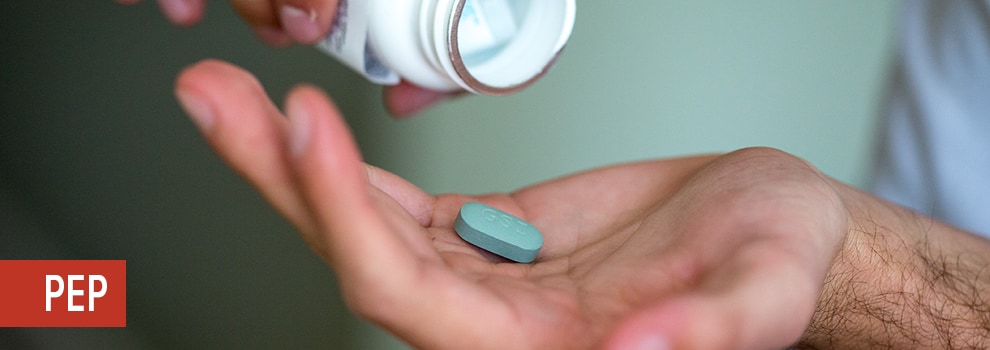PEP

PEP (post-exposure prophylaxis) means taking medicine to prevent HIV after a possible exposure.
PEP Must Be Started Within 72 Hours of Possible Exposure to HIV
Talk right away (within 72 hours) to your health care provider, an emergency room doctor, or an urgent care provider about PEP if you think you’ve recently been exposed to HIV:
- during sex (for example, if the condom broke),
- through sharing needles, syringes, or other equipment to inject drugs (for example, cookers), or
- if you’ve been sexually assaulted.
The sooner you start PEP, the better. Every hour counts. If you’re prescribed PEP, you’ll need to take it daily for 28 days.
PEP is for Emergency Situations
- PEP is given after a possible exposure to HIV.
- PEP is not a substitute for regular use of other HIV prevention.
- PEP is not the right choice for people who may be exposed to HIV frequently.
- If you are at ongoing risk for HIV, such as through repeated exposures to HIV, talk to your health care provider about PrEP (pre-exposure prophylaxis).
Depending on the reason you are prescribed PEP, you may qualify for free or low-cost PEP medicines.
Paying for PEP After a Sexual Assault
- You may qualify for partial or total reimbursement for medicines and clinical care costs.
- Find resources available in your area.
Paying for PEP After an Exposure at Work
- Your workplace health insurance or workers’ compensation will usually pay for PEP.
Paying for PEP for Another Reason
- If you cannot get insurance coverage, your health care provider can apply for free PEP medicines through the medication assistance programs run by the manufacturers.
- These requests for assistance can be handled urgently in many cases to avoid a delay in getting medicine.
- Enrollment applications, such as Gilead’s Advancing Access form or Medical Assistance Tool, can be completed online, over the phone, or by fax.
